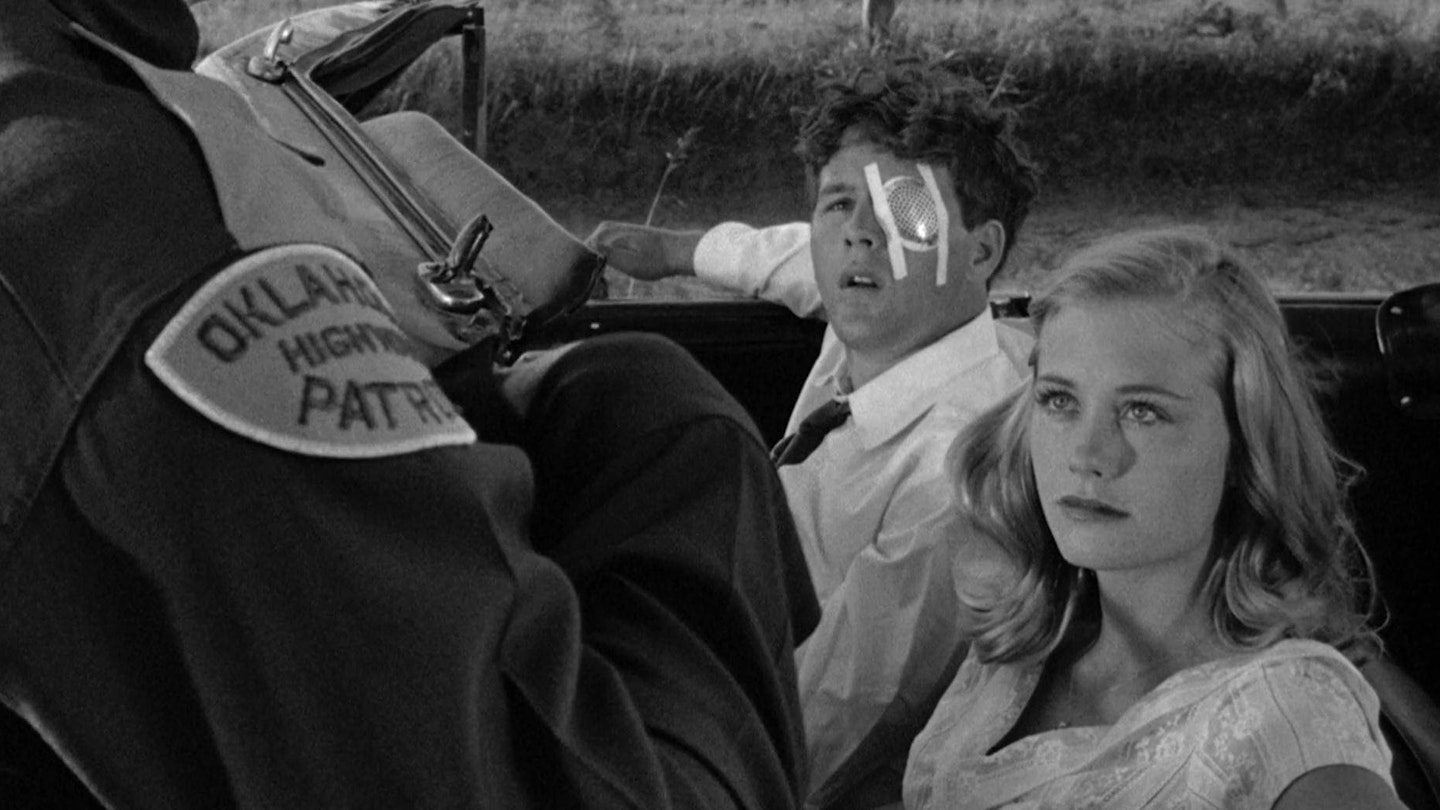Based on the novel by Larry McMurtry this is a more-bitter-than-bittersweet drama of growing up and winding down. Shot unusually in black and white while the rest of Hollywood was going psychedelic for 1971, it’s an interesting contrast with the rock ‘n’ roll nostalgia of American Graffiti, visiting a recent past already nostalgic for a heroic Western era and discovering that whatever was wonderful was already gone by the time of these teenagers.
Introspective Timothy Bottoms and outgoing Jeff Bridges are best friends, stalwarts of the school’s losing football team, and Cybill Shepherd the blonde teen queen who innocently spreads chaos everywhere, ditching longtime boyfriend Bridges to run with a richer, faster set, stealing Bottoms away from older married woman Cloris Leachman, and prompting a vicious falling-out between the fast friends. As the kids run around heedless, the town’s older generation remember their own wilder days and wonder how they came to be so unhappy:
Ben Johnson, in Academy Award-winning form, is the wise old cowboy who runs the movie house and pool hall, muses about his long-ago affair with Shepherd’s feisty mother (Ellen Burstyn). In essence, it’s a soap, but director Peter Bogdanovich plays it as a John Ford-style ‘closing of the frontier’ Western, with ugly-beautiful images of a West that has swapped cattle for oil but failed to strike it rich, layering in evocative snatches of Hank Williams among the whistling winds and the whining locals.
It perhaps has one tragedy too many in its last act, but delivers a signature line of wistful regret, ‘nothing’s been right since Sam the Lion died’. The director and cast reunited in 1990 to film McMurtry’s more farcical sequel Texasville.
